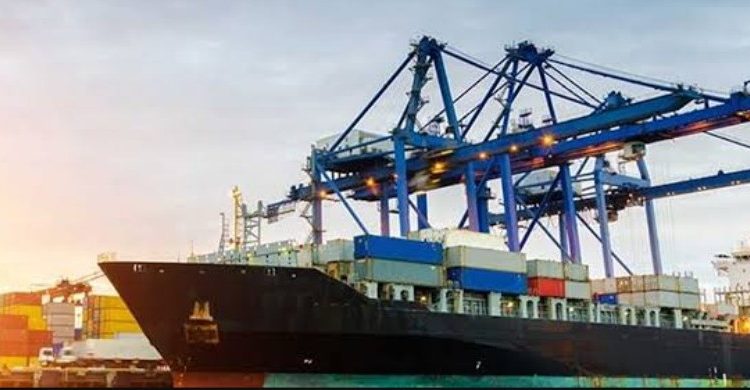JETRO launches survey on Japanese companies to calculate impact of new Customs Rules of Origin
For this, JETRO has prepared a Questionnaire for these companies to respond to understand the problems that they are facing. And basis this feedback, it would consider working out a future course of action.
NEW DELHI: The Government of Japan through its overseas trading arm Japan External Trade Organization (JETRO) has launched a nation-wide survey on Japanese situated companies in India to ascertain the impact of new Customs Rules of Origin, better known as CAROTAR 2020 – Customs (Administration of Rules of Origin under Trade Agreements) Rules, 2020.
JETRO with the support of the Embassy of Japan in India, and Japan Chamber of Commerce & Industry in India (JCCII), and other Japanese chambers spread across India, has reached out to all the Japanese companies who are engaged in the import/export of goods asking them to share the impact of CAROTAR by Friday, November 27.
For this, JETRO has prepared a Questionnaire for these companies to respond to understand the problems that they are facing. And basis this feedback, it would consider working out a future course of action. The summary of the report so prepared is likely to be shared with the Government of India also, and also could be made public by posting it on JETRO’s website.
Implemented from September 21 by the department of revenue, Ministry of Finance, the new Rules of Origin require the importing companies to disclose the origin of the goods following which the companies are facing immense problems at various ports. Shipments are getting delayed, and companies are not able to avail preferential duties under FTA.
Japan’s Ministry of Economy, Trade, and Industry (METI) also has written to the Indian government to abort the new Rules, and also warned India of its negative impact on the bilateral trade prospects as well as on economic relations between both the countries.
In its communication to Japanese companies, the JETRO that represents 1454 Japanese companies operating on Indian soil, said that following the enforcement of this rule, there have been a series of consultations such as customs requesting information on the place of origin from October, customs clearance has stopped, and FTAs have not been approved in the previous documents.
“We have received more than 100 inquiries from various the Chambers of Commerce and the Japanese Embassy. So far, the Japanese government has constantly contacted and exchanged opinions with the Central Board of Indirect Taxes and Customs (CBIC) of the Ministry of Finance, issued letters from the Economic Minister of the Embassy of Japan in India to each customs director, and Southwest Asia of the Ministry of Economy, Trade, and Industry of Japan,” stated the JETRO communication.
The questionnaire has been sent to the member companies of JCCII, Kolkata Japan Chamber of Commerce, Bangalore Japan Chamber of Commerce, Chennai Japan Chamber of Commerce, Mumbai Japanese Association, Pune Japanese Association, Ahmedabad Japanese Association, and Hyderabad Japanese Association.
 The survey results would be statistically aggregated, summarized in the form of a report, and made public on the JETRO website. The name of the individual company and what kind of response the individual company responded to will not be disclosed. If necessary, JETRO might translate the final report into English and submit the same to the Government of India.
The survey results would be statistically aggregated, summarized in the form of a report, and made public on the JETRO website. The name of the individual company and what kind of response the individual company responded to will not be disclosed. If necessary, JETRO might translate the final report into English and submit the same to the Government of India.
However, even the Indian corporate world has expressed its concern about the negative impact of CAROTAR 2020.
According to Reena Asthana Khair, Senior Partner, and Head, International Trade & Indirect Taxation, Kochhar & Co., “While the legislative intent behind CAROTAR is laudable, for the new measures to be trade-friendly, India must respect the certificates issued by the exporting country. Only in exceptional cases, where there is reason to doubt the origin, based on credible information, the second scrutiny should be carried out. The inquiries can be focused on certain products or certain regions, from where misuse has been noticed or there is a high possibility of diversion of non-originating goods.”
“There is little evidence of diversion of non-originating goods from countries like Japan and Korea. Subjecting all imports under the FTAs to the same level of scrutiny will hamper the ability of importers to claim concessional rates of duty available to them under the FTAs. The spirit of co-operation which led to these Agreements should not be lost,” Senior Partner, and Head, International Trade & Indirect Taxation, Kochhar & Co., added.
But the Indian government seems very firm on its stance on CAROTAR 2020, has not exhibited any kind of deviation on new Rules of Origin despite objections raised by FTA member countries like Japan and South Korea. Korean companies are facing a similar fate on various ports.
The Indian Government is of the view that the CAROTAR aims at maintaining the balance of trade with the friendly countries with which India has signed FTA, and also to maintain FOREX reserves. It also aims at protecting the domestic industry. And finally, it aims at checking to dump of goods, said an official of CIBIC on the condition of anonymity.
When asked why couldn’t India’s ally countries like Japan and South Korea be given preferential treatment and thus exemption from CAROTAR 2020, the official said that such rules would have to be enforced uniformly on all constituent countries as the purpose of bringing in the statutory amendments failed, and also violated WTO rules.
Related article: Japan’s METI steps in, Flags concerns of Japanese Cos facing customs issues under CAROTAR 2020



